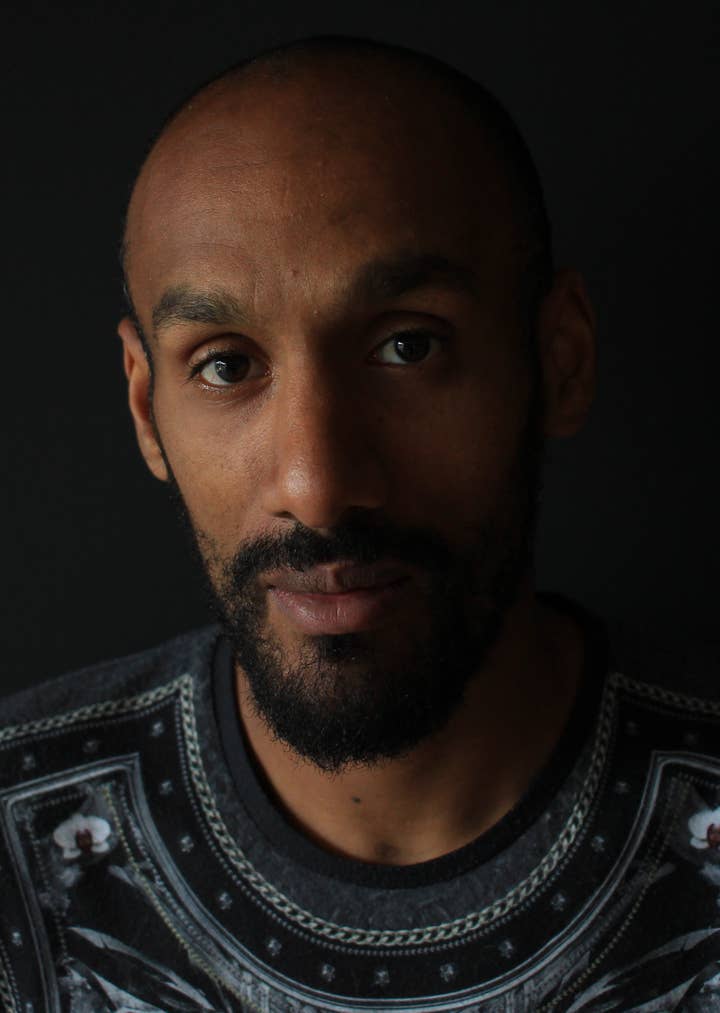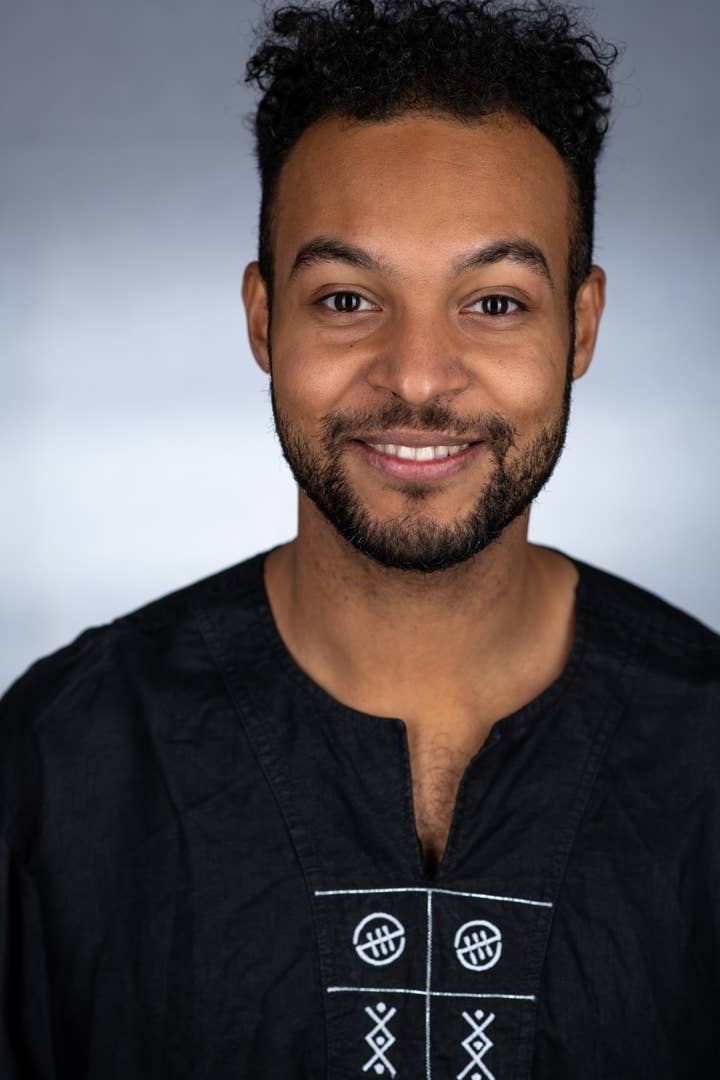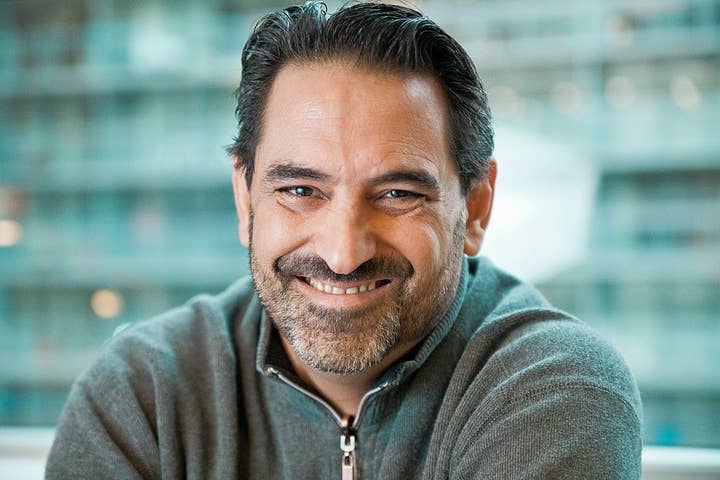20 lessons from 20 years
Industry icons, developers and more share their learnings on how to build the best team and ensure your studio will thrive
As part of our ongoing celebration of GamesIndustry.biz's 20th anniversary this year, we explored the biggest lessons learned during the site's life so far in a talk delivered at last month's Develop:Brighton conference.
We invited a range of prominent developers, indies and other industry professionals to share the most important insights they have gathered over the last two decades – and for those who were unable to make it to the talk, we've provided the highlights below.
Don't think you have everything figured out

Dinga Bakaba, studio and co-creative director, Arkane Lyon
Learn from your colleagues. Sometimes young developers join thinking that the old guard is out of touch and they have the new approach figured out. The more senior developers think that they have everything figured out and they don't have to learn from students and the people joining the industry.
No matter where you are in your career, embrace interactions with colleagues. Talk to them, hear what they have to say. See what you agree to disagree on, which is extremely important as well.
I've learned more from talks with more experienced and less experienced developers than I did in any conference. Don't think you have everything figured out.
Build the best team, then be the dumbest member
Warren Spector, chief creative officer, OtherSide Entertainment
Build the best team you can, made up of the best people you can, not the best people available. Make sure someone has a clear vision and can layout an appropriate success criteria. For some, it's making a ton of money or reaching millions of people. For others, it's making something people are still talking about in 20 years.
Then comes the counter intuitive part: with team vision and definition of success in place, get out of the way. Be the dumbest person in the room. Let the team loose. As long as they don't stray from vision or success, they'll conceive and build things better than you can imagine. And that's the best measure of success I've ever experienced.
Root out the problem hires early, or don't let them in
Brenda Romero, CEO and game director, Romero Games
Even if a potential new hire or publisher checks all the boxes on your list, have a secondary checklist: why should we not hire this person? Why should we not do this deal? The goal isn't to tear this person apart, it's to think about the things they said which might not be a great fit for your studio.
Some actual examples: one person mentioned that if they could run a team, they'd want to be a dictator. Another person mentioned their affiliation with what I'd consider pretty close to a hate group. Checked every single box in the 'why should we hire' but could have done all kinds of damage internally.
The people who take the most time, the publishers who take the most effort, are the ones that cause you difficulty. Try to root that out as quickly as possible or just not let any of that in.
Make games for individuals, make games for you
Sam Barlow, game director and owner, Half Mermaid
The relationship between the game and the player is one-to-one. It's very intimate so making a game is much closer to how we might think of a novel than, say, a movie when we're playing to a crowded audience, and it's a larger spectacle.
For me, the only way to make a video game is to listen to myself, make something that directly follows my own curiosities and desires. The more specific and particular I can make a game, the greater the chance there will be people out there for whom that game really resonates and delights. The only way to make something that is going to blow the mind of your audience is to make something very specific and personal. To think about the game you want to play that doesn't exist and then call that into existence.
Why creatives shouldn't be afraid of becoming CEOs
"Be the dumbest person in the room. Let the team loose. They'll conceive and build things better than you can imagine"
Warren Spector, OtherSide Entertainment
Caroline Marchal, CEO and creative director, Interior Night
I didn't want to be a CEO, I just did it because I had to [when I started my company]. I ended up doing loads of things that creatives usually don't do and I probably made loads of mistakes, but we're still here. Now I wouldn't give up my seat to anyone, even if it's stressful, because being a CEO just empowers you and allows you as a creative to take the studio and your game in the direction you want to. It's very empowering and it gives the team stability and clarity. I'm super, super proud of having assembled this team of lovely, talented people. So this is it. This is why I think it's worth it.
Things are easier done than said
Aaryn Flynn, CEO, Inflexion Games
Things are quite often easier done than said. I know that's a flip on the usual statement of easier said than done, which tends to be the sort of response to when somebody is overreaching or inexperienced. We have such great tools nowadays as developers, we can actually take steps to actually resolve ourselves through playable, provable prototypes. Easier done than said is really about that.
A lot of times we talk ourselves into the notion that things are too difficult, that we should talk more and maybe learn more about something. But decision making is about information, not about time. A lot of times a playable prototype gives us the information we need for trying to seek a decision. So easier done than said is a lesson I learned the hard way in my career.
Stay

Rami Ismail, indie developer
One of the best statements you can make in games if you want to do something cool or change the industry, if you're a minority or whatever it is, is to have the privilege and the courage to just stay, to just be here. As an industry, I think we've slowly gotten better at helping the good people to stay. But there's a lot left to do. We have started talking about crunch and working conditions, about mental health, representation, marginalisation, about making sure power structures are fair. But ultimately they're all saying the same thing: we want good people to stay.
As an Arab man who grew up in the Netherlands and never felt like there was anybody that I could look to look up to, that look like me, that sounded like me, that spoke my language, one of the most powerful things we can do in the industry is enable people like me to stand here, still be part of this industry. Don't let anybody do anything that damages your ability to stay. Not everybody will be able to do that. There's no shame in wanting out, because this place can be awful. But if we can make it easier for good people to stay, that is probably the best lesson I've learned in this industry.
Keep your IP, don't be afraid of failure, and know your role
Ian Livingstone, industry veteran
There are three main things I'd like to focus on, the first being intellectual property and the value thereof. Owning intellectual property is fundamental to the value of any company and the greater multiples of value will be established through that IP. Too often, I've seen IP traded away for project finance where the content creators not realising the full value. Hang onto it for as long as you can.
Secondly, do not be afraid of failure. Failure is success work in progress, but there are many ways where you can stop yourself from failing and one being is taking investments. Having investment in your company allows you to do the job with the right people in place, give you enough cash runway to be able to realise their ambitions and also be successful without having to panic or, as I said earlier, still trade away your IP to get project finance.
The last thing is partnership arrangement. There's no point in a creative director ordering the toilet rolls, doing the VAT returns, doing the fundraising when it could be better done by an equal business partner and on the same basis, there's no reason – nor should you ever let – the business director decide where a project's going, because they tend to make something that was popular last year, which might not be popular next year.
Don't be afraid to fire people to protect your team

Allan Cudicio, founder and creative director, Twin Drums
I want to give a bit of tough love and go back to my experiences where I started jobs in the industry hearing some negative slur as a black gay man on my first day. I've literally had that. HR did nothing. And I remember at some point swearing to myself that whenever I become a manager and later CEO, I'm never going to let this happen. Like I'm going to fiercely defend anyone in my team. And I did it.
Firing is not always a bad thing. I'm in favour of labour laws and protecting employees, and you shouldn't fire for bad reasons. You can educate, you can teach, but if red lines are being crossed, just fire the person. Protect your team, protect those weak people, those introverts, those minorities. I've got stronger in ways that I shouldn't have but I don't want everybody to go through that. And so I will fire sometimes and you should as well.
Passion, people and persistence
Chella Ramanan, co-founder and writer, 3-Fold Games
My three lessons are passion, people and persistence. Find that thing that you are passionate about in games, that thing that you want to inject into games in some way, whether it's the way they made or the thing that it's about or some innovation you're passionate about. Something that drives and motivates you and keeps you going.
Once you've found that thing, find people who inspire, support and challenge you because they're the ones that are going to help you when you get stuck. Working in games is hard and you'll need those people to keep you going, to sort of bounce those ideas off.
And then, persistence because, like I said, being in games is hard. You need that passion and those people for when those moments when you lose all hope, when it seems too difficult or someone tells you your idea is crap. But if you're passionate about it, it's something worth pursuing and finishing.
The industry needs cultural ambassadors
"Just because something might be the industry standard practice doesn't mean it's actually the best for your team or your game"
Sitara Shefta, No Brakes Games
Gina Jackson, founder, GameDev Bootcamps
My advice to developers, publishers and all those working around the sector is to find those stories and individuals who can be our cultural ambassadors for games. Not to shy away from discussions or prejudices about what we do and how we do it.
Imagine being in a society where politicians were happy to discuss the games they played, were happy to be with a game developer or esports star in the same way they are happy to meet a film or TV star. Imagine telling someone you just met about what you do and they weren't apologetic that they didn't play games.
We focus a lot on what we deliver as an industry. Everyone knows we make more money than TV and film, but do we have a bigger cultural impact than they do?
Make the game you want, make it yours
Shahid Ahmad, director, Crescent Code
If you love what you do, you do it. You don't look for permission. Your love should drive you to make the thing you want to make. I waited too long for permission. I asked Twitter, I ask publishers, friends, developers, the audience – they don't know. Few people can articulate what they want, and even few can articulate what they want before it exists. That's your job.
Only you can make the thing you love. So make what you want. Make it unquestionably yours. Put all your love into it, put all of you into it. There's no competition for that. And then, who knows?
Hire right, not quickly
Aj Grand-Scrutton, CEO, Dlala Studios
Nothing is more important than the people you work with and the people you hire. It's all about hiring, right, not hiring quickly. It can be very easy when you have gaps on your team and in your projects to try and fill those gaps as quickly as possible, but it's really important that you find the right people to fit those gaps. You want to bring someone in who doesn't just have the right skillset, but also is complementary to the rest of the team.
This doesn't mean finding identical personalities and attitudes and tastes. What it does mean is that anyone you bring in should disrupt your team in a positive way. You don't want to bring in something that's a clash of personalities that causes distress in your team. Instead it's just about focusing on building that big family together.
There are no such things as shortcuts

Stephane D'Astous, previously founder of Eidos Montreal
Don't believe in shortcuts, and do your homework. It seems quite basic, but if you do both, you save a lot of time. You reduce a lot of rework and frustration. And when I say shortcuts, I'm not saying that there is no innovative way to approach a project, but you know what? Great shortcuts don't exist. The path to success is not a short one and you need to work smartly and with a lot of teamwork.
You need to be courageous and to uncover all the stones that are in your path. You will need to answer questions that you don't know. But the simple fact of knowing all the risks is a good headstart, so you need to ask yourself a lot of tough questions. Get out of your comfort zone, because all this will reduce improvisation, and improvisation in business is a killer. When you're not ready and you react and you do not anticipate, that's when you're losing ground.
The power of empathy
Cinzia Musio, diversity, equity and inclusion consultant
The thing with empathy is we think it is something that you either have or don't have, but it's actually a skill you can work with. And like every other skill that you gain, the more you work on it, the better you get at it. Start speaking to people around you, learn their stories and look at what they are doing and what their life has been like.
There's such a great sense of creativity that we can then take to our games and just make everything we do better. But on top of that, with that empathy you then can make sure that the people around you stay, and you keep the right people or we fire the people that shouldn't be there. That empathy scale can take you so far and will make all of us much better for it.
It's okay to do things differently
Sitara Shefta, head of studio, No Brakes Games
Just because something might be the industry standard practice doesn't mean it's actually the best way forward for you, your team or your game. We're all incredibly creative people in games and sometimes we need a little more creativity when it comes to our processes and best practises team.
"Only you can make the thing you love. So make what you want. Make it unquestionably yours"
Shahid Ahmad, Cresent Code
When we first started working on our current projects, we adopted sprints and agile development, as it's what most of us knew from our past roles. But about a year in, we were failing, which didn't make us feel great, and we realised we felt we were too constrained by time pressure or arbitrary deadlines.
So we moved to lean development, which is used in quite a lot of other software industries, but it made it quite hard to take a step back and look at the game as an overall product. So we shifted to our current hybrid approach.
Sometimes it's better to ditch the norm because it's helped to boost our quality our momentum and our team morale – even if they are considered standard practise in game development.
Respect your audience
Noirin Carmody, commercial director, Revolution Software
When we shared the new image of George from Broken Sword with our Kickstarter backers, they said he didn't look right. We changed it – the artists weren't very happy, but we did it and the backers were so pleased. They felt part of the project, which of course they were because they were part funding it, but they also felt really delighted we were listening to them.
Another part of our promise was we'd give them a DRM-free disc. Our publisher couldn't provide that, so the boxes went out with a DRM disc – and the audience were not happy. We had to source a production company that could deliver DRM-free discs, which was actually quite difficult. We posted out these discs to those who asked for it, and not only were they delighted but they were posted about how we communicated with them and were listening. So my big lesson is: respect your audience and engage with them. Allow them to criticise you when you're not doing the right thing.

